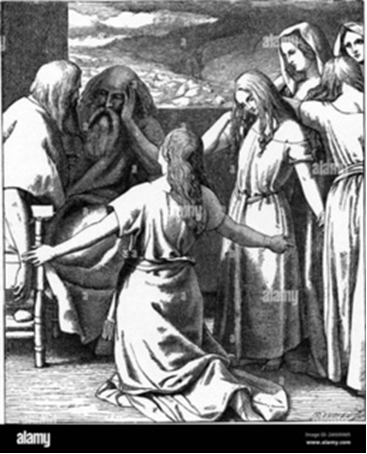Shabbat Pinchas Shalom
Jul 22, 2022
By Phyllis Chesler

In the heat of a very hot summer, and while continuing to endure the symptoms of long Covid for the second time—and because this offering is little enough given that I cannot risk attending shul—I turn to the parsha as a discipline, but really, for consolation, elevation, insight, and for the rich, multi-century conversations about it among our sage ancestors.
And here we have another dramatic parsha, named for Pinchas, Aharon’s grandson, who speared the Midianite princess, Kozbi bat Tsur, together with her Israelite lover, Zimri ben Salu. (25:14-15). A Midianite? Didn’t Moshe marry Zepporah, the High Priest of Midian’s daughter? True, Moshe did not engage in any God-forbidden pagan practices. But I have some other questions: Clearly, God condemned intermarriage and/or men being tempted by non-Jewish women; and yet, the practice continues to this day. What, if anything, does this mean? One more question: No daughters of Israel are recorded as having engaged in such forbidden sex. Why is that not properly noted? Or is it?
And here we have the five daughters of Zelophahad, filled with faith, demanding their father’s portion in the Holy Land (27:1-8). Even Moshe does not know how to judge their request. God famously grants them their rights. The great Ramban, Nachmanides, teaches us that Zelophahad’s daughters couched their request in such a way as to signal to Moshe that their father had not been among those who “murmured” against Moshe and Aharon, nor did he play a role in Korach’s rebellion. Further, he was not among those who died in the plague. The Ramban quotes Rabbi Yehuda Halevi, who points out that these daughters are saying that merely because Zelophahad had no sons, does not mean that he died because of any of these preceding sins. “He died of his own sin, “ke b’hetko met.” (27:3).
A sweet Shabbat Shalom.
